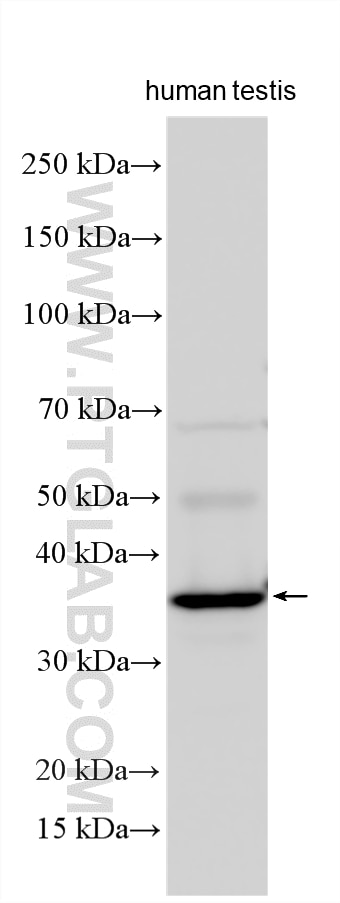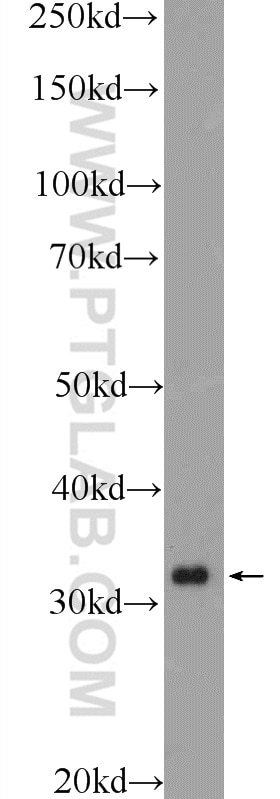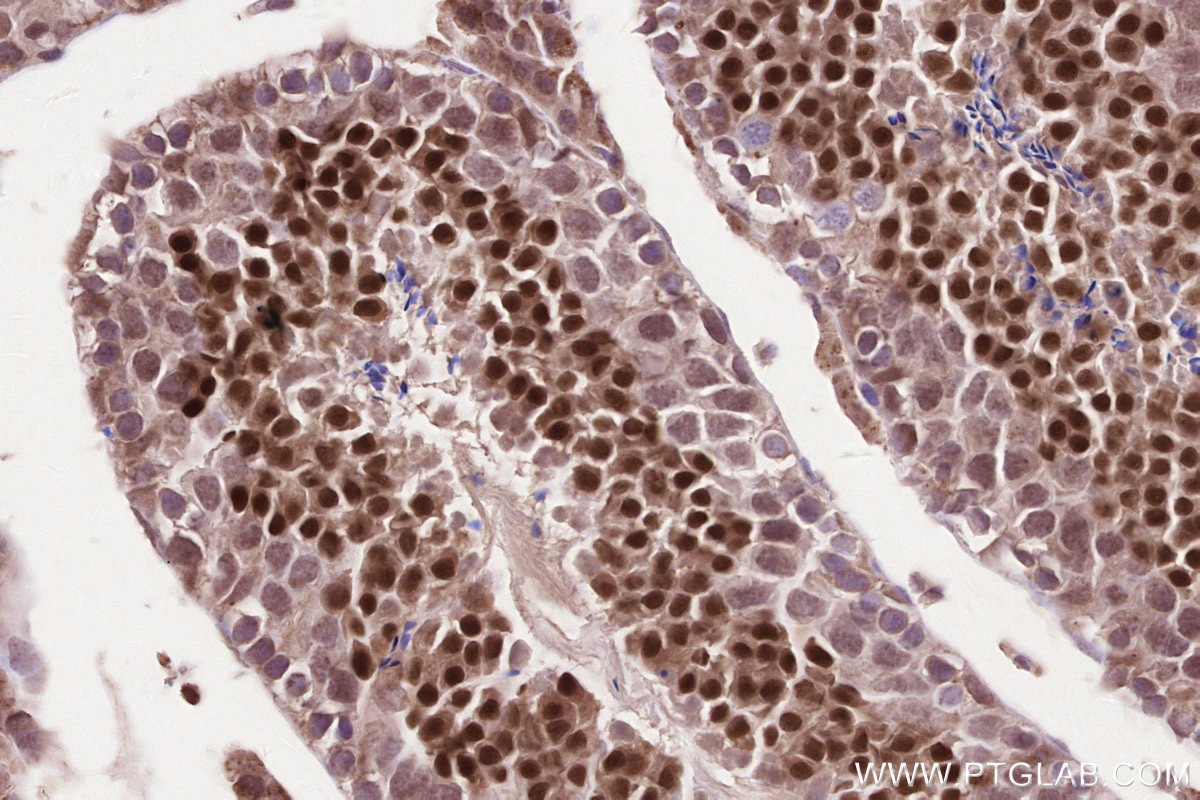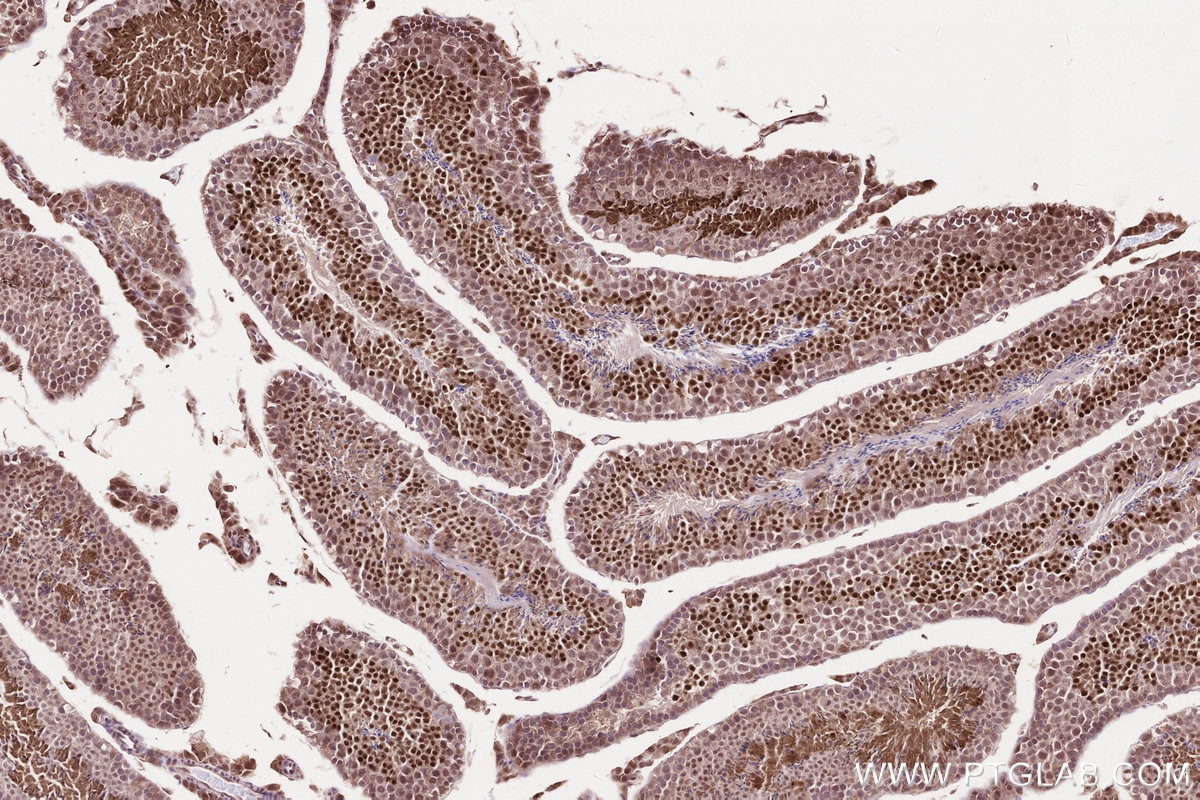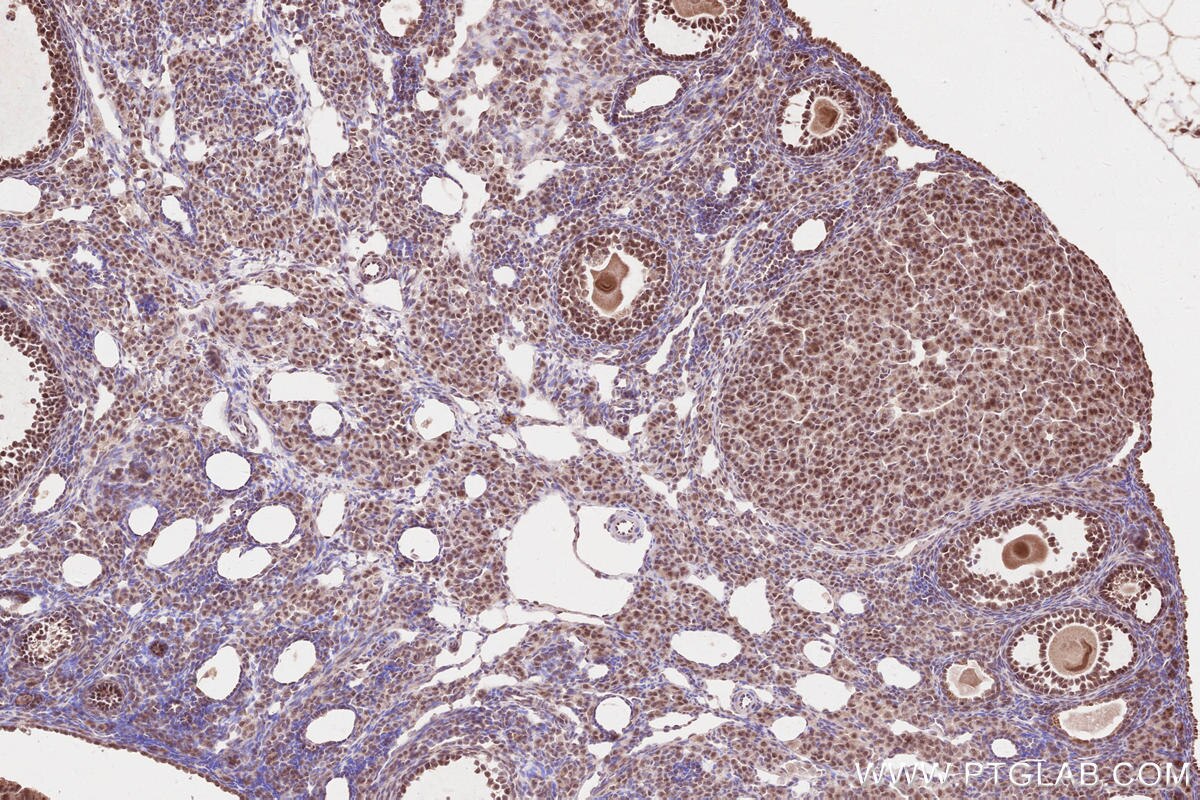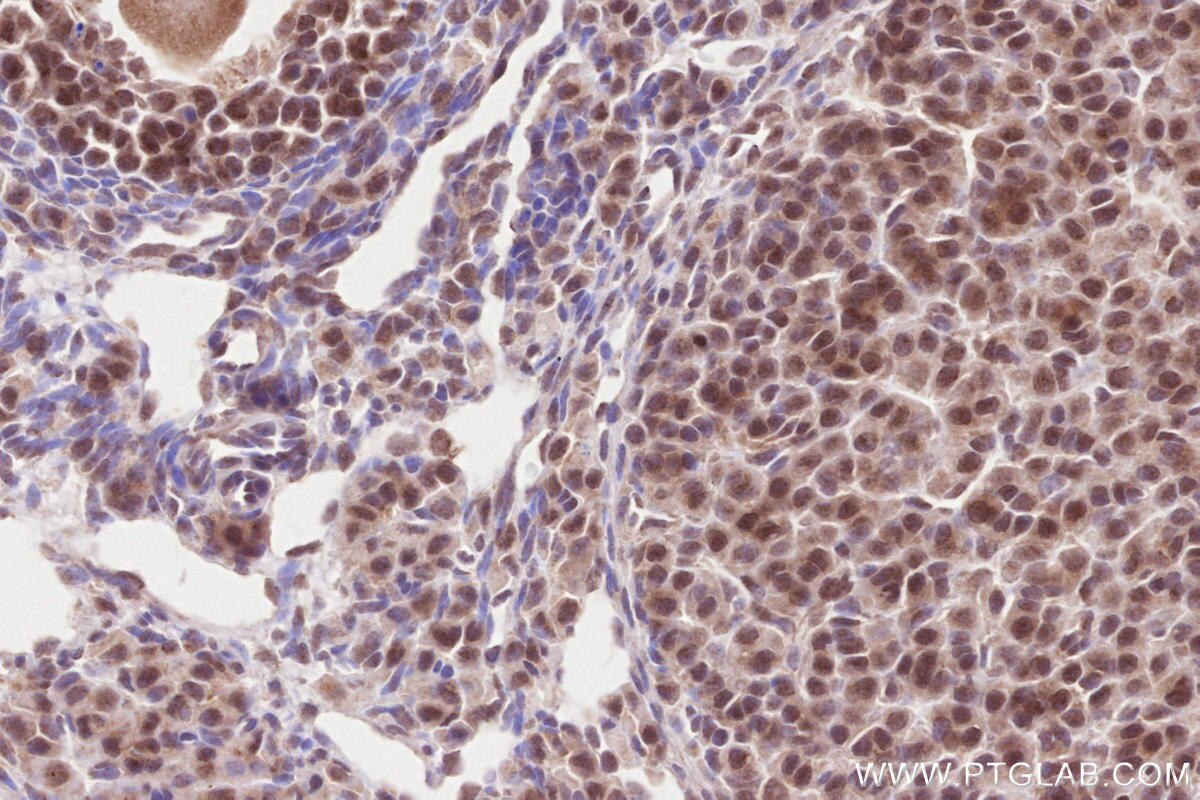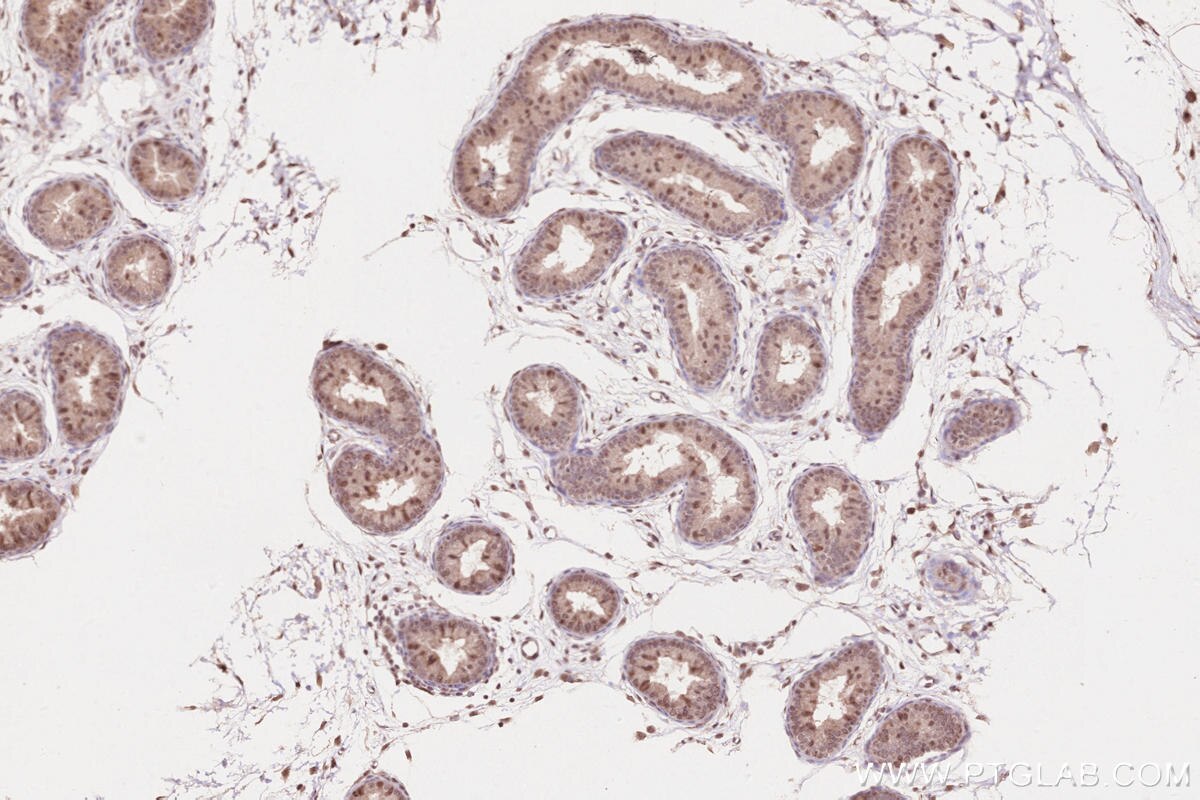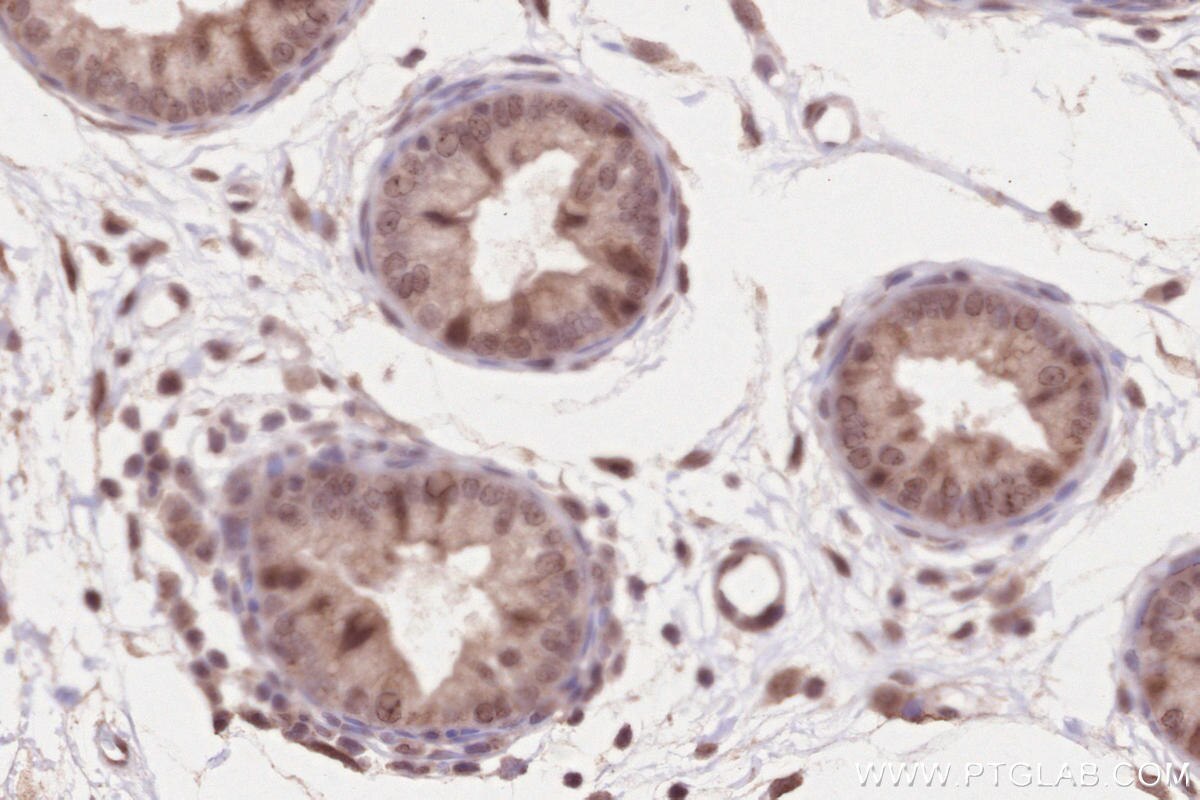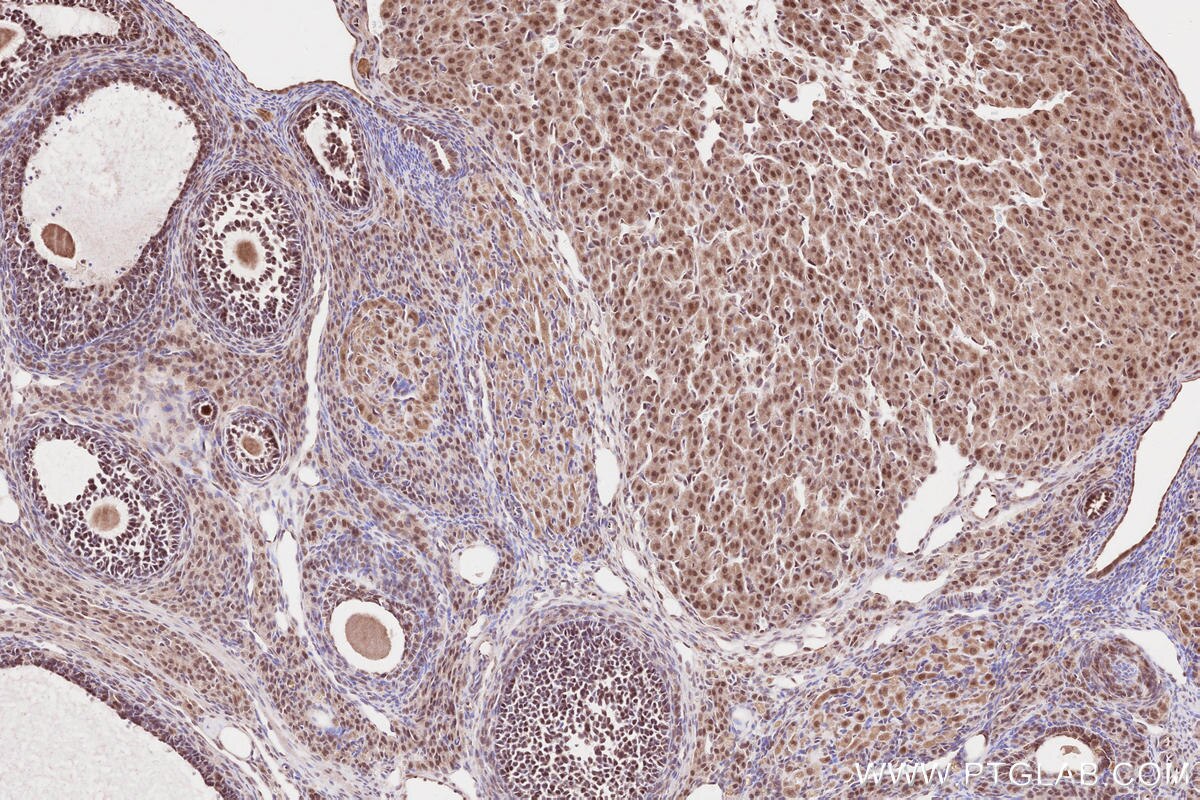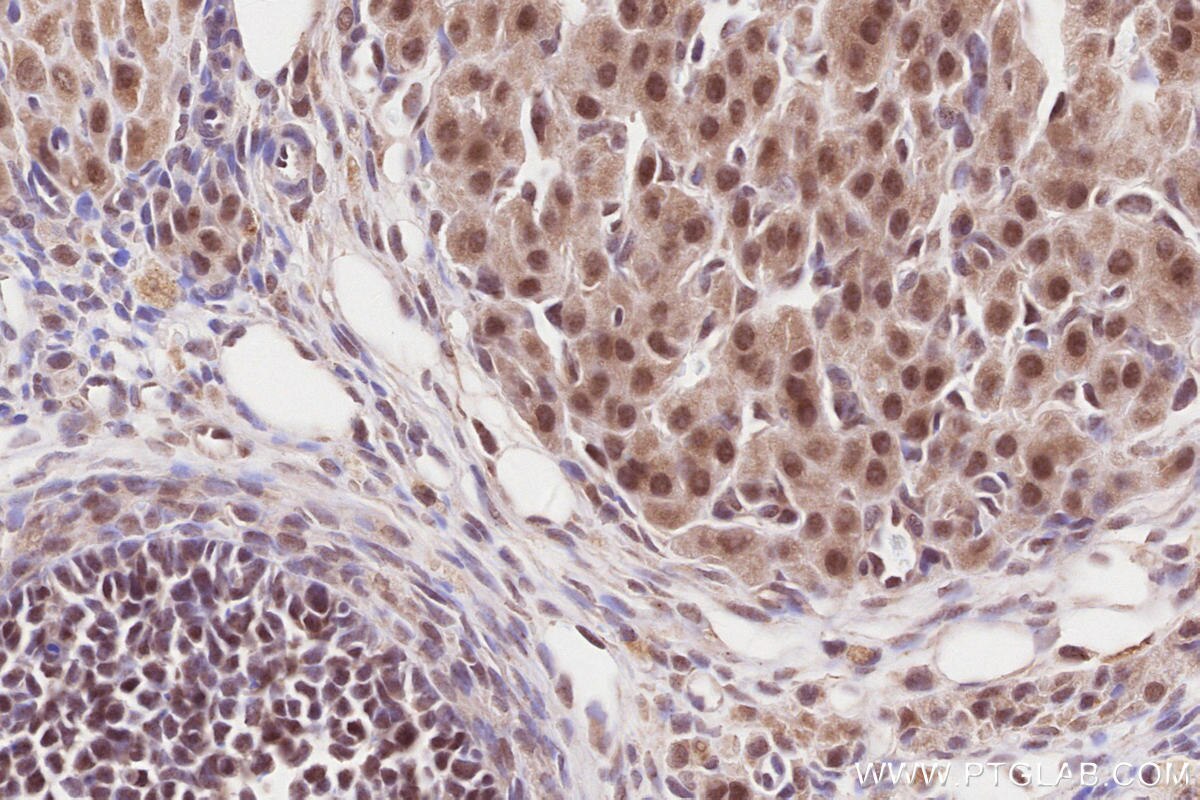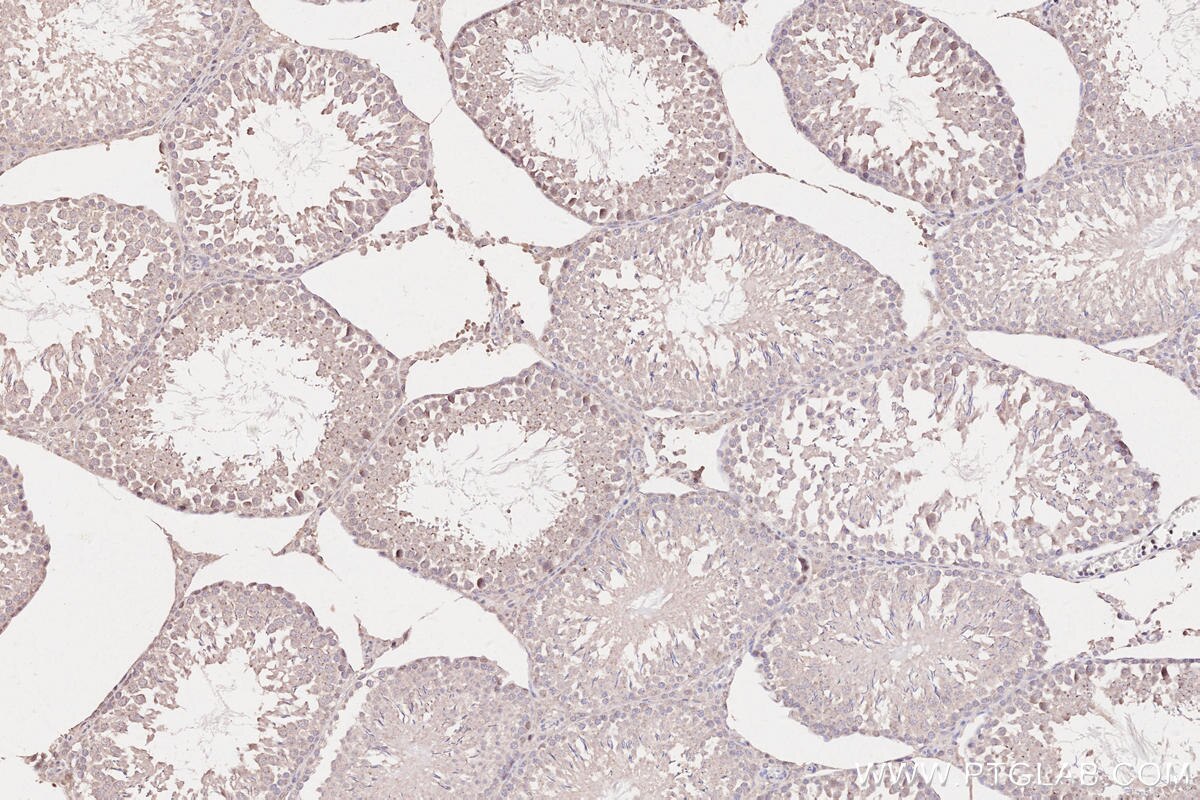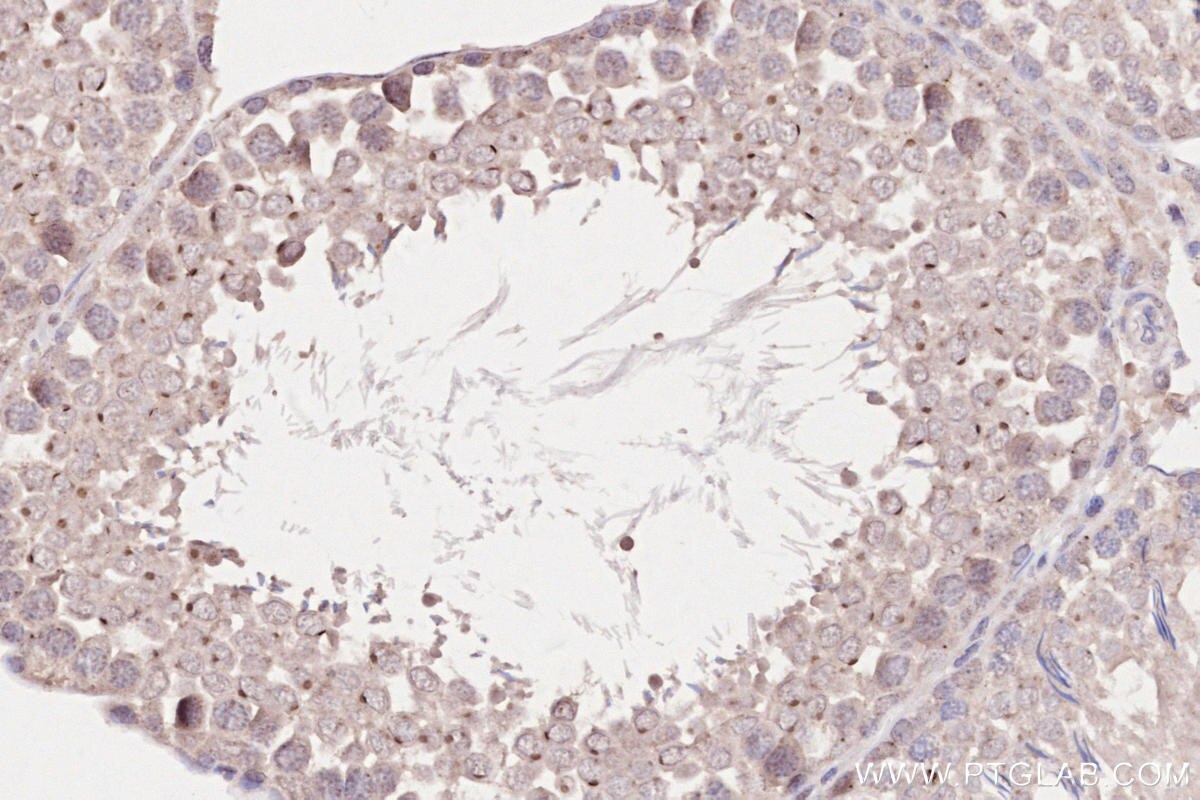Anticorps Polyclonal de lapin anti-WBP2NL
WBP2NL Polyclonal Antibody for WB, IHC, ELISA
Hôte / Isotype
Lapin / IgG
Réactivité testée
Humain, rat, souris
Applications
WB, IHC, IF, ELISA
Conjugaison
Non conjugué
N° de cat : 22587-1-AP
Synonymes
Galerie de données de validation
Applications testées
| Résultats positifs en WB | tissu testiculaire humain, tissu testiculaire de souris |
| Résultats positifs en IHC | tissu testiculaire de souris, tissu ovarien de rat, tissu ovarien de souris, tissu testiculaire de rat il est suggéré de démasquer l'antigène avec un tampon de TE buffer pH 9.0; (*) À défaut, 'le démasquage de l'antigène peut être 'effectué avec un tampon citrate pH 6,0. |
Dilution recommandée
| Application | Dilution |
|---|---|
| Western Blot (WB) | WB : 1:500-1:2000 |
| Immunohistochimie (IHC) | IHC : 1:50-1:500 |
| It is recommended that this reagent should be titrated in each testing system to obtain optimal results. | |
| Sample-dependent, check data in validation data gallery | |
Applications publiées
| WB | See 8 publications below |
| IF | See 4 publications below |
Informations sur le produit
22587-1-AP cible WBP2NL dans les applications de WB, IHC, IF, ELISA et montre une réactivité avec des échantillons Humain, rat, souris
| Réactivité | Humain, rat, souris |
| Réactivité citée | Humain, souris |
| Hôte / Isotype | Lapin / IgG |
| Clonalité | Polyclonal |
| Type | Anticorps |
| Immunogène | WBP2NL Protéine recombinante Ag18347 |
| Nom complet | WBP2 N-terminal like |
| Masse moléculaire calculée | 309 aa, 32 kDa |
| Poids moléculaire observé | 32 kDa |
| Numéro d’acquisition GenBank | BC022546 |
| Symbole du gène | WBP2NL |
| Identification du gène (NCBI) | 164684 |
| Conjugaison | Non conjugué |
| Forme | Liquide |
| Méthode de purification | Purification par affinité contre l'antigène |
| Tampon de stockage | PBS with 0.02% sodium azide and 50% glycerol |
| Conditions de stockage | Stocker à -20°C. Stable pendant un an après l'expédition. L'aliquotage n'est pas nécessaire pour le stockage à -20oC Les 20ul contiennent 0,1% de BSA. |
Informations générales
WBP2NL, also known as PAWP, is a protein found in the post-acrosomal region of mammalian spermatozoa. It was initially proposed as a sperm-borne oocyte-activating factor (SOAF) that triggers calcium oscillations essential for oocyte activation and embryo development. However, recent studies have shown mixed results regarding its role in fertilization. While some investigations suggest that PAWP can induce oocyte activation, others indicate that it may not be sufficient to compensate for the absence of other critical factors like PLCZ1. Additionally, altered WBP2NL expression has been observed in breast cancer tissues, hinting at its potential involvement in oncogenic regulation. (PMID: 24907910, PMID: 25417742, PMID: 28663133)
Protocole
| Product Specific Protocols | |
|---|---|
| WB protocol for WBP2NL antibody 22587-1-AP | Download protocol |
| IHC protocol for WBP2NL antibody 22587-1-AP | Download protocol |
| Standard Protocols | |
|---|---|
| Click here to view our Standard Protocols |
Publications
| Species | Application | Title |
|---|---|---|
Hum Mol Genet Homozygous mutation of PLCZ1 leads to defective human oocyte activation and infertility that is not rescued by the WW binding protein PAWP. | ||
Int J Mol Sci Comprehensive Flow-Cytometric Quality Assessment of Ram Sperm Intended for Gene Banking Using Standard and Novel Fertility Biomarkers. | ||
Development PLCζ is the physiological trigger of the Ca(2+) oscillations that induce embryogenesis in mammals but offspring can be conceived in its absence. | ||
Mol Hum Reprod Functional disparity between human PAWP and PLCζ in the generation of Ca2+ oscillations for oocyte activation. | ||
Mol Hum Reprod Antigen unmasking enhances visualization efficacy of the oocyte activation factor, phospholipase C zeta, in mammalian sperm. |
